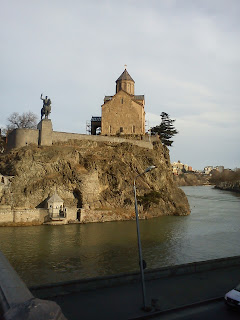Depopulated destinations… since when?
Tourism is struggling to
recover.
Usually overcrowded tourism
destinations in this season normally swinging into high gears remain largely
deserted, and in everybody’s eyes still reverberate the images of empty
beaches, streets, squares.
The true is some of these
destinations, although devoured by flocks of tourists, were depopulated far
before the Covid19 crisis.
Like any industry,
or I’d better say like any human activity, tourism will always impact the
destination. Tourism causes emissions, smog, pollution, waste. This short list relates
only a slice of the its impact, and does not fleshes out more extreme
situations, i.e. overtourism.
Overtourism can be
defined as tourism where the maximum capacity of a tourist destination is
quantitatively exceeded by the number of arrivals. Simply put, there are too
many tourists. The impact of overtourism transcends the elementary list
mentioned above, and it leads to a complete reversal of tourism's purposes. If,
as it is well known, tourism can contribute to preserving and promoting an artistic,
naturalistic, cultural asset, overtourism obtains the opposite effect to the extent
of representing a real threat to goods, ecosystems, sacredness and traditions.
Overtourism – contrary to well managed tourism - does not facilitate the
meeting between people but rather causes the collapse of social systems, with
roads, offices, services invaded by a human flow that they are unable to
sustain.
Overtourism obviously has a
huge social impact on the host communities, most of which develop a strong
sense of alienation towards tourists. Or worse: residents abandon the area
affected by overtourism thus turning cities, villages, neighbourhoods into
open-air museums. Emptied by their residents, who are the custodians of the
rhythm of life, of the speech, of the traditions, of the way of inhabiting a
landscape, the destinations look completely distorted. They lose their
uniqueness and authenticity, which paradoxically are what tourists search for.
I spent 6 wonderful years
living in Venice, and therefore it’s the case study that immediately pops up to
my mind. Venice is challenged as a city by the so called Venexodus. It has now one
fifth of the residents compared to the past, and the few who remain fight
against an increasing number of disservices. Bakeries are replaced by Venetian mask
shops, house prices are now prohibitive, a pervasive network of tourist rentals
mines the possibility to build normal neighbour relations. With residents, services,
utilities and jobs disappear. Overtourism is making the city sink into a slow
agony as alarmingly as its delicate and unstable lagoon ecosystem.
The less a city works as such,
the more its inhabitants have very few options. If all revolves about tourism,
it there is no really economic differentiation, it is hard to believe that a
critical mass of citizens will be really motivated to change the tourism
system. And it’s a merry-go-round, just not merry at all.
Overtourism affects as well
the counterpart: the quality of the tourist experience of those who frequent an
overcrowded destination or suffer from a chronic overtourism cannot be but
disappointing. If the aim of tourism is to enjoy a landscape, a piece of art, a
cultural context, to live an interesting and stimulating experience away from
stress, or to recreate yourself through sport, well, this goal cannot but fail
in an overcrowded city, in a museum where you can hardly catch a glimpse of a masterpiece.
Sport tourism is not an
exception. The less satisfied with their tourism experience are statistically
skiers and snow boarders, who are compelled to endlessly wait at the ski lift.
But they are not the only category
concerned. Runners, hikers, alpinists, MTBykers, surfers… name a sport, same
old-same old: whenever there are too many fellow-practitioners around, the
experience is far less enjoyable. Not to mention the impact on treks. The
Himalayan treks are a lesson to be learnt – and avoided.
So this is the chance: now or
never, for each and every destination on its own, and as an industry.
Tourism has temporary gone
cold turkey, and it can be reset far more easily now than when it will be
throttling up on huge, unmanageable, numbers, again.


Commenti
Posta un commento